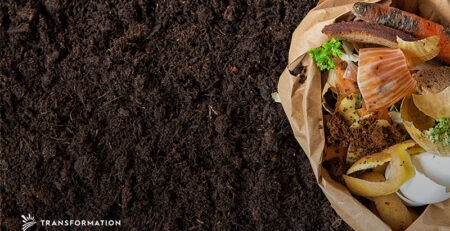The Importance of Waste Management
Waste management is a problem, not only in the United States, but the world. According to the United States Environmental Protection Agency 292.4 million tons of municipal solid waste (MSW) was generated in 2018 by the US alone. The urban waste produced by cities around the world every day is enough to fill a line of garbage trucks stretching more than 3,100 miles, which is about the distance from Florida to Washington.
The world population is expected to reach 9.6 million people by 2050 and we urgently need to find a solution to our waste problem.
Most of the waste we produce ends up in landfills that are expensive, wasteful of natural resources and are damaging to our environment. Landfills produce a significant amount of greenhouse gases such as methane that is almost 30 times more potent than carbon dioxide. The waste created and sent to landfills in the U.S. has tripled over the past 60 years.
Source: World Bank
In general, recycling or composting the items typically found in municipal solid waste streams offers energy savings. However, by creating a market for the electricity produced by burning solid waste, incinerators discourage efforts to conserve resources, reduce packaging and waste, or recycle and compost.
New technologies have the potential to offer a better solution to waste management. Waste can be used as a valuable resource that allows us to generate energy in new and innovative ways that are sustainable and protect the environment.
At the forefront of efficient waste reduction is the city of San Francisco aiming to become a zero waste city. San Francisco already sends less trash to landfills than any other major U.S city. According to CNBC “thanks to bold public policy and educational initiatives, the city diverts about 80 percent of its waste from landfills, or more than 1.5 million tons every year”.
In 2009 the city passed a law that required residents and businesses to sort their waste into recyclables, compostables, and landfill trash.
Composting
According to the Environmental Protection Agency food scraps and yard waste together currently make up more than 30 percent of what we throw away and could be composted instead. Making compost keeps these materials out of landfills where they take up space and release methane. Composting returns nutrients to farms, it strengthens soil and promotes healthy plant growth. In addition, composting reduces the need for pesticides and synthetic fertilizers as well as attracting critters and microorganisms that are good for soil and plants.
San Francisco has one of the most modern composting facilities in North America. After the composting process is completed, the compost is sold to local farmers and vineyards in the area. Farmers are then using the compost to grow cover crops that pull carbon out of the atmosphere and return carbon back to the soil which is one of the best things we can do in an effort to slow down climate change.
Transformation is specialized in impact investments in the markets of energy, water, agriculture and healthcare. By integrating the latest technologies with sustainable innovations, we help clients achieve lasting profit, while maximizing system efficiency and impact. Contact us to talk about your projects and investment interests.




Comment (1)
It’s nice that you talked about how new technologies have the potential to offer a better solution to waste management. I was watching the TV yesterday and I saw an infomercial about waste management. From what I’ve seen, it seems there are green waste management solutions being offered now, which sound nice.